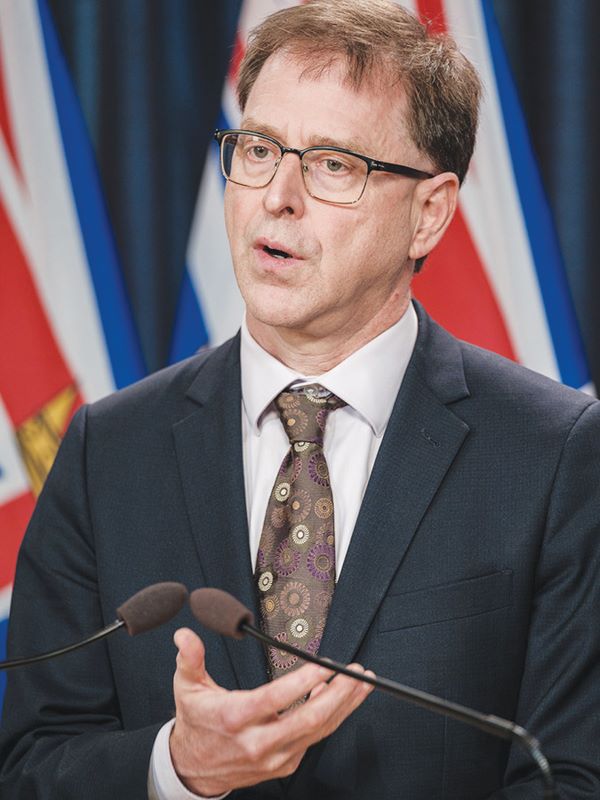VANCOUVER – Patients around B.C., especially those living in rural and remote areas, will benefit from
improved access to life-saving cancer care as the Province provides $20 million to expand medical travel
support.
“When people who are diagnosed with cancer must travel to receive treatment, they deserve support
every step of the way,” said Adrian Dix, Minister of Health. “That’s why government is partnering with the
Canadian Cancer Society and Hope Air to expand their existing programs in B.C. that aim to support all
facets of cancer patient travel. By providing grant funding to these two incredible charitable organizations,
we are helping patients focus on receiving their cancer treatment at one of the six BC Cancer Centres or 41
community oncology network sites so they can get well as soon as possible.”
The Canadian Cancer Society and Hope Air have each received $10 million to expand their travel programs
and support cancer patients. Both organizations will have an Oct. 3, 2023, launch date.
The Canadian Cancer Society will expand its three programs: the Travel Treatment Fund (TTF), which
provides grants to patients for travel expenses; the Wheels of Hope program, which matches patients with
volunteer drivers; and their four lodges, which offer accommodation and meals for patients and their
caregivers near cancer centres in Victoria, Vancouver, Kelowna and Prince George.
Applications under the TTF will be accepted retroactively to April 1, 2023. The organization is also adding
new supports for patients with blood cancers who require bone marrow transplants in Vancouver.
“A cancer diagnosis places a significant financial and emotional strain on people with cancer and their
families that is heightened for those needing to travel far distances to their treatment,” said Dr. Sandra
Krueckl, executive vice president of mission, information and support services, Canadian Cancer Society.
“Thanks to this generous funding from the B.C. Government, the Canadian Cancer Society is expanding
access to our travel and accommodation support programs so more people in B.C., particularly in rural and
remote communities, can access their life-saving cancer treatment.”
Hope Air will expand its services to increase support for patients and caregivers through increased ground
transportation, overnight accommodations and meal vouchers for patients. They will also provide 2,500
flights for patients in B.C. travelling to receive cancer treatment by 2026.
“This medical travel funding grant supporting patients with cancer will be transformational for those living
in rural and remote communities throughout British Columbia,” said Mark Rubinstein, chief hope officer,
Hope Air. “Dealing with cancer is hard – travelling to care should not be. Hope Air programs will reduce the
significant expenses associated with long-distance travel for those living far from hospitals and clinics and
will help deliver much better health outcomes for cancer patients in need.”
The two organizations have co-developed a system to ensure people accessing their services receive the
appropriate services and support, regardless of which organization they connect with. For instance, if a
person requires a flight, they will automatically be connected to Hope Air, and if a person requires ground
transportation and/or accommodation only, they will be connected directly to the Canadian Cancer
Society. Patients with a household income of as much as $150,000 are eligible.
“By alleviating some of the challenges associated with long-distance travel and extended time away from
home, we are demonstrating our commitment to putting people first and promoting health equity across
B.C.,” said Jennifer Rice, Parliamentary Secretary for Rural Health. “These changes will allow cancer
patients and their families to focus on self care, supporting loved ones and obtaining the rest they need,
rather than dealing with logistical and financial hurdles.”
On Feb. 24, 2023, the Province launched its 10-Year Cancer Action Plan with an initial investment of $440
million, including $20 million to support people living in rural and remote communities who need to travel
for cancer care. Government will continue expanding cancer care through the plan to better prevent,
detect and treat cancers today, and to meet growing future demand. Through investments in research,
technology and innovation, the Province is strengthening cancer care in B.C. and delivering more
innovative, evidence-based care for people when and where they need it.
To increase capacity and keep up with demand into the future, the Province is adding more cancer centres
throughout B.C., upgrading existing hospital space through renovation and expansion, including the
addition of net new diagnostic imaging equipment and hiring new physicians and clinical support staff
through B.C.’s Health Human Resources Strategy. (news.gov.bc.ca)








